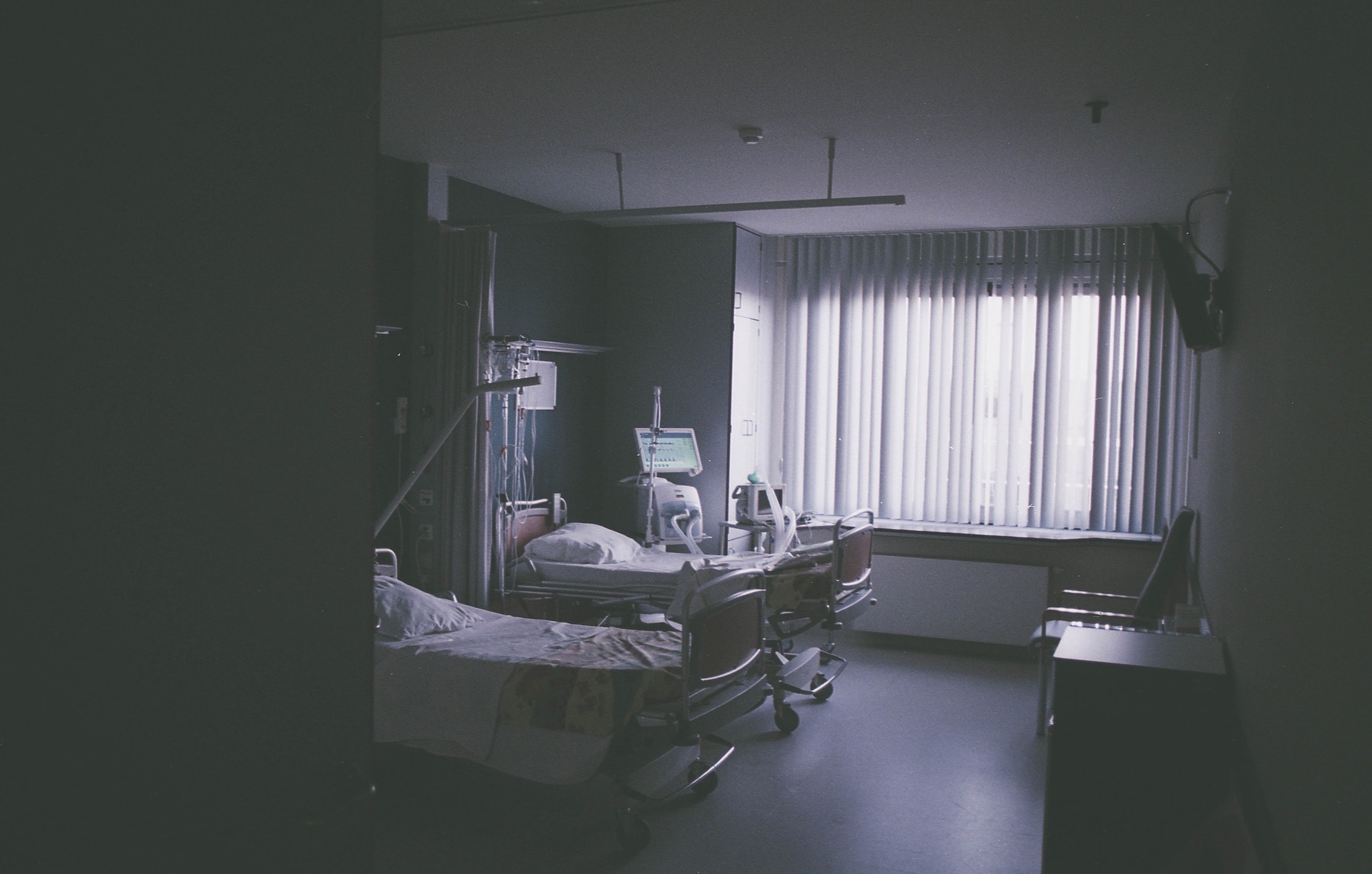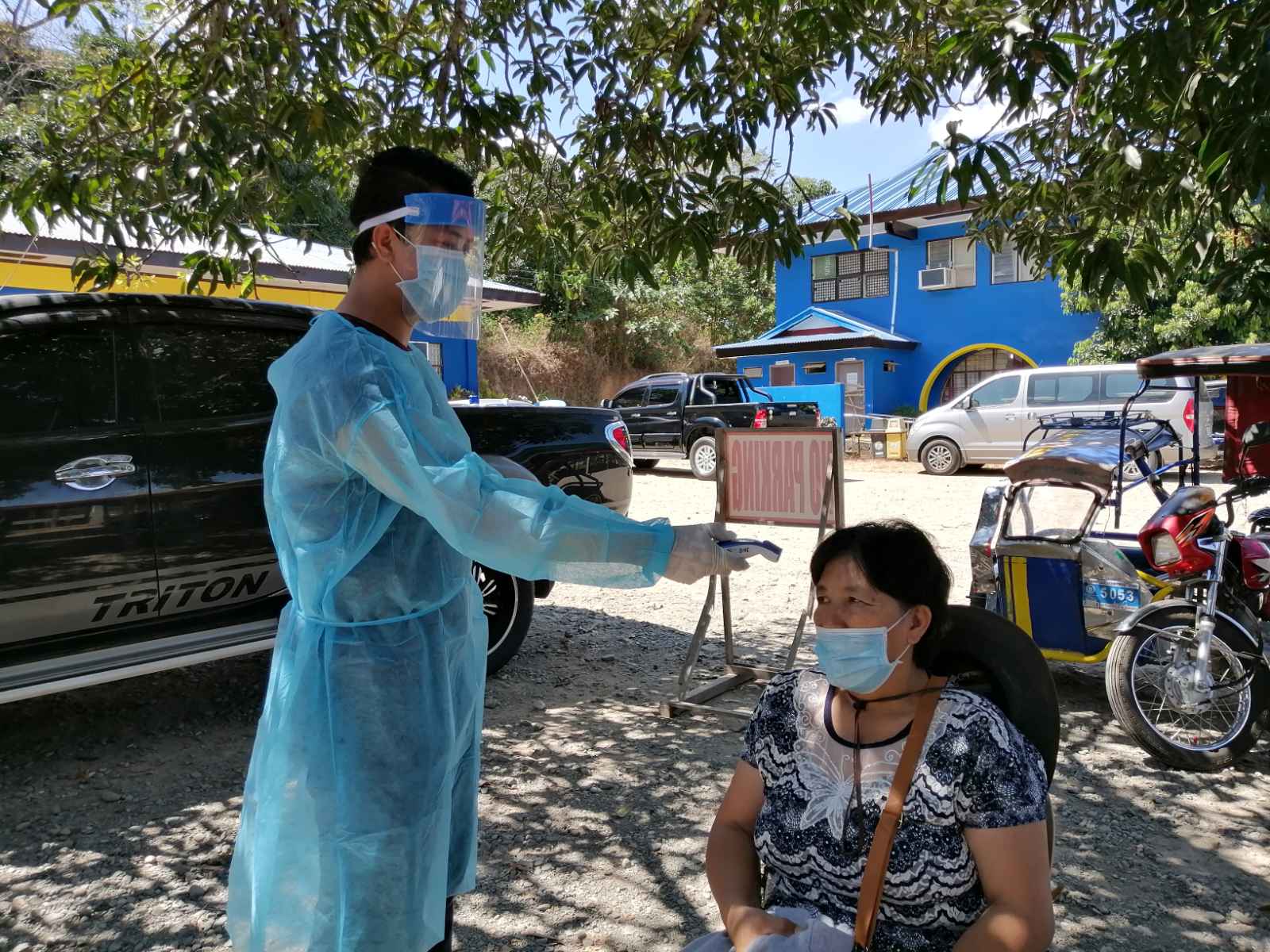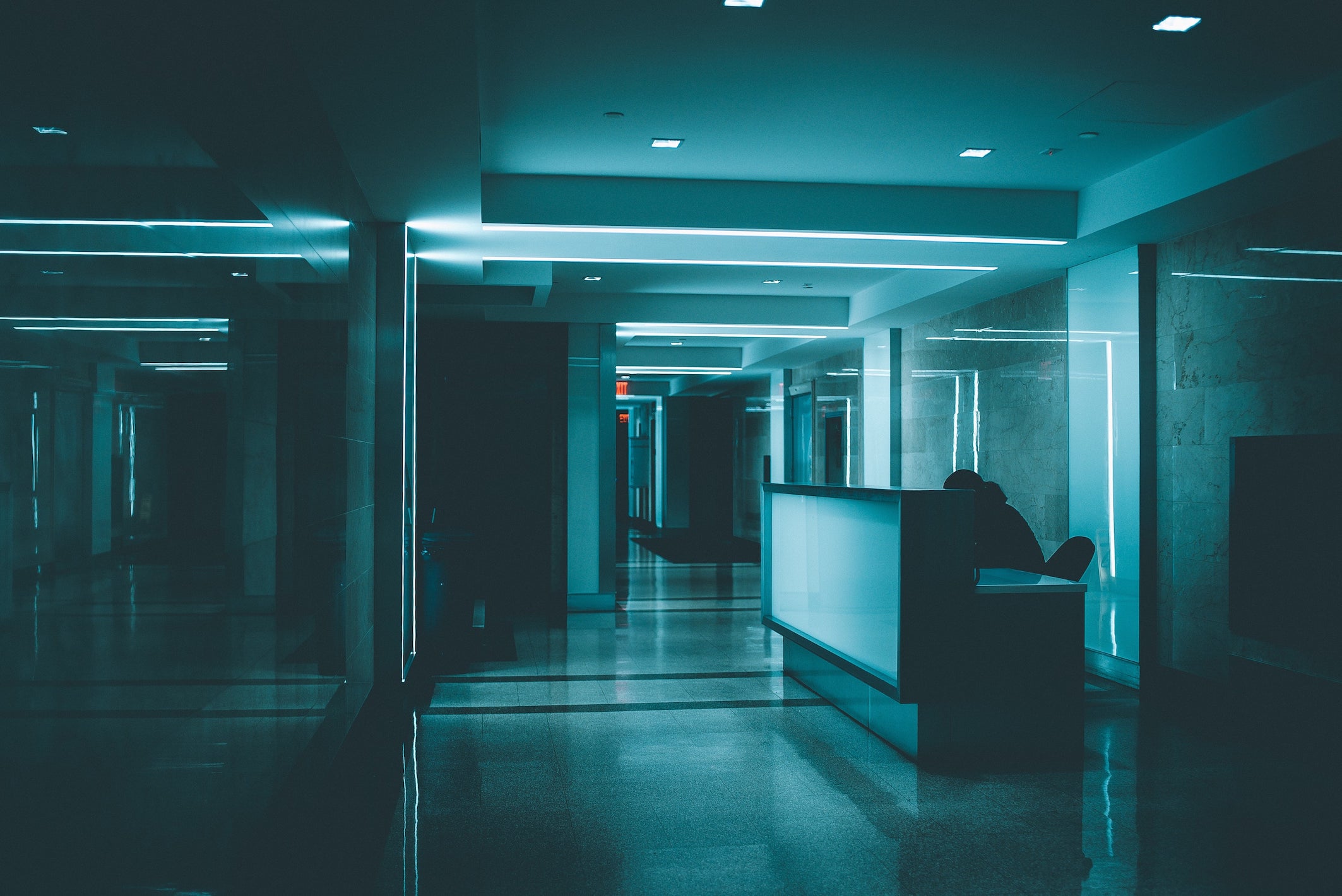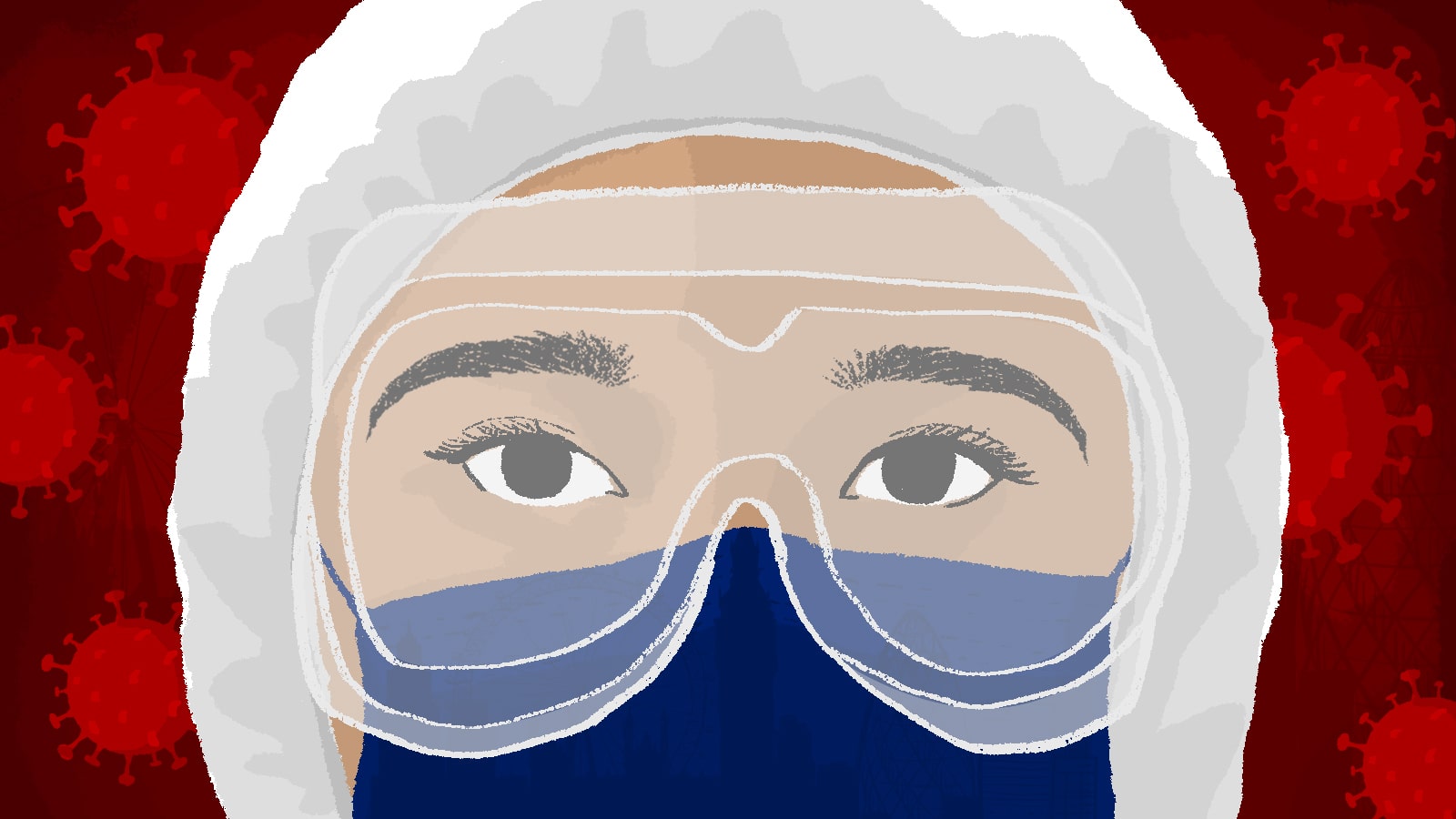Patrick looked at the dialysis patients and adjusted his face mask as he stamped out a feeling of dread rising within him. It was in the early weeks of the coronavirus crisis, and the 28-year-old Filipino registered nurse, who’d been in the United Kingdom less than a year, was suddenly facing the biggest challenge of his career: taking care of patients who had been infected with COVID-19.
Patrick, which isn’t his real name, is among the nearly 19,000 Filipinos working for the National Health Service (NHS), the publicly funded healthcare system of the United Kingdom. They work as nurses or porters, making them the third biggest group in the system after Britons and Indians. And as the coronavirus has swept across Europe, many have sacrificed their lives on the front lines. At least 25 Filipino nurses working for the NHS have died, prompting the Philippine embassy in London to express its “deep concern” over the tragedy.
With deaths mounting each day, Coconuts Manila spoke to two Filipino nurses about why they chose to leave the Philippines and what they’re going through. Both nurses, who support their families, asked to speak anonymously for fear of losing their jobs.
Patrick
The nursing profession was thrust upon Patrick. He was not given a choice.
In a Skype interview, he said he actually wanted to be a math professor. He had a real aptitude for numbers, but his uncle, a nurse working in the United States who supported their family, insisted that Patrick pursue a career in healthcare, because it would give the latter the opportunity to leave the Philippines.
Read: Duterte ‘OK’ with Filipino nurses working abroad but warns possible shortage

But despite following his uncle’s wishes, the big bucks didn’t come easy for Patrick. Like most nursing graduates, he was forced to accept an unpaid nursing job in his school for several months just to gain experience.
“I volunteered in my school’s hospital for eight months doing the night shift. They couldn’t hire us immediately because there was a batch of nurses who were hired prior to us. We didn’t receive a single cent,” he said in English and Filipino.
Nurses are paid a pittance in the Philippines, with new graduates getting paid as little as PHP9,000 (US$177) per month. Like Patrick, many are forced to take on unpaid work just so they can gain experience. With fees at Philippine nursing schools starting from US$2,800 a semester, it’s not exactly the most fortunate of situations.
Some nurses have even been forced to pay hospitals just so they could get a job.
“Years ago, there were a lot of nurses, and hospitals weren’t hiring. Hospitals would low-ball nurses; some of them were even asked [by the hospitals] to pay just so they could volunteer. I know people who have paid [public] hospitals just so they could be hired,” explains Patrick.
After seven years of working in the Philippines, Patrick left for the UK, and landed a job in a hospital in a town that’s a short drive away from London. While he’s glad that Filipino nurses are highly respected and appreciated there, the COVID pandemic has unmasked just how unprepared UK hospitals are. Similar to the Philippines, there’s a shortage of high-quality personal protective equipment (PPE), an issue that the British government has been criticized for.
“Those PPEs! A lot of people are disappointed with those PPEs. But according to the higher-ups [here in the hospital], based on scientific studies, they should be okay,” he said.
But Patrick cannot help but express alarm over what he has to wear each day.
“It’s just a plastic apron, surgical mask, and gloves,” he said.
The lack of protective equipment has led to many sleepless nights where he is haunted by fears that he will get infected. It doesn’t help that nurses in his hospital are not tested for the coronavirus.
“We are only tested when we display symptoms because there are limited testing kits. There are plans for [asymptomatic] frontliners to be tested, but they might start first with those working in the emergency rooms before those of us who work in the ward,” he lamented.
“I’m scared. We are all scared. No matter how healthy you are, you don’t know how it would affect you. You have to be very meticulous with your handwashing [to avoid infection]. I’m just really scared because I take care of dialysis patients, half of whom are COVID-positive,” he added.
“Sometimes, I just want to go home. At least in the Philippines, even if you don’t have money, you’re with your family.”
Alice
Unlike Patrick, Alice chose to be a nurse; it was not a path forced on her. A graduate of the University of the Philippines (UP), she initially planned to be a doctor but ditched her dream when she realized that medical school was not for her.
“[I realized] that you don’t have to be a doctor to do great in your career,” the London-based 35-year-old nurse told Coconuts on one of her days off.
Like most UP graduates, Alice – also not her real name – worked at the Philippine General Hospital, an underfunded public institution servicing mostly Manila’s poorest of the poor. Witnessing children dying at the pediatrics ICU pushed her to leave the Philippines, among other reasons.
Read: ‘Amazing Job’: Host Piers Morgan thanks Filipino nurses for contribution to UK’s COVID-19 fight

“Because I was working at the pediatric intensive care, many of my patients were dying. I was starting to feel desensitized over that and I realized that it’s time for a change because it was no longer healthy [for me],” she said.
Alice arrived in the UK in 2010, and became enamored with the healthcare system there.
“The management of patients in the Philippines is led by a doctor. Whatever the doctor says, that’s how the patient will be treated. [As a nurse,] you don’t have a lot of autonomy in your practice. But here, there are so many things that you can do as a nurse independently. You can make your own assessments,” she said.
Read: Cebu City nurses planning to quit as hospitals see spike in COVID-19 cases
“[Here,] it’s more collaborative. I can voice out my suggestions and my input has an impact on how the patient is managed. I think that’s the biggest difference [between working in Manila and London]. Of course here, it’s more advanced, we have better equipment compared to the Philippines,” she said.
Yet even the UK’s healthcare system was not prepared for the impact of COVID-19, which has killed almost 30,000 people in the kingdom, as of writing time. At first, its government wanted to pursue the strategy of achieving herd immunity, which Alice said showed how much “in denial” the government was of the impact of the coronavirus.
“I have this feeling that because the UK is a first world country, they thought, ‘It’s not gonna touch us.’ I feel that brought the downfall of many of the countries; that’s why they’re struggling, particularly Europe, the UK, the U.S.,” she said.
Alice is directly involved in the care of COVID-19 patients and the mounting number of deaths has made her anxious. Almost every person who shows up in the emergency room has the viral respiratory disease, and sometimes she fears that she would end up dead, like the other Filipino nurses and hospital porters who died in the UK.
“Every time I go to the hospital the thought that pops in my head, ‘I might be next,’” she said.
“Even if you wear a PPE, you might still get infected. When you’re on your way to work, when you’re at the canteen, you’re not wearing a PPE. The people around you, your colleagues who just got sick, and had to report again for work—who’s to say that they’re no [longer] carriers [of the virus]?” she said.
“It’s really worrying but if I keep thinking about it, I won’t be able to function.”
Read: ‘I love my countrymen’: Duterte mulls stopping healthcare workers from moving overseas

She has also become a little cynical about flagrant displays of appreciation for NHS workers, the most notable of which is Clap for Our Carers, a weekly event where everyone across the UK applauds frontliners. Critics have lamented that more than applause, NHS workers need better pay and adequate equipment to protect them from the coronavirus.
“My cynical side says, ‘Now you’re applauding us but on normal days you would scream at us as if you’re paying our salary,’” she said, chuckling.
“Well, it’s about time that we get the recognition that we deserve but aside from saying ‘Thank you,’ there should be changes in how frontliners are being treated. It’s not just doctors and nurses who put their lives on the line. For example, those people who drive buses,” she said.
“But I feel, after COVID, the world will go back to its capitalist ways where people who work in financing, banking will keep earning more money [than we do],” she said.
The hardships that Alice has endured have led her to tell her sister, whose education she pays for, that she should pursue a career other than nursing.
“I said, ‘It’s enough that we have one nurse in the family. It’s enough that there’s one tribute.’ It’s a hard job. For example, Christmas, New Year, these holidays, you can’t assure your family that you’ll be there for them. Then [add the fact that] your patients will die under your care,” she said.
“It’s normal for people to die but it’s not normal for death to be a part of your job. It will eventually take a toll on you,” she said.


